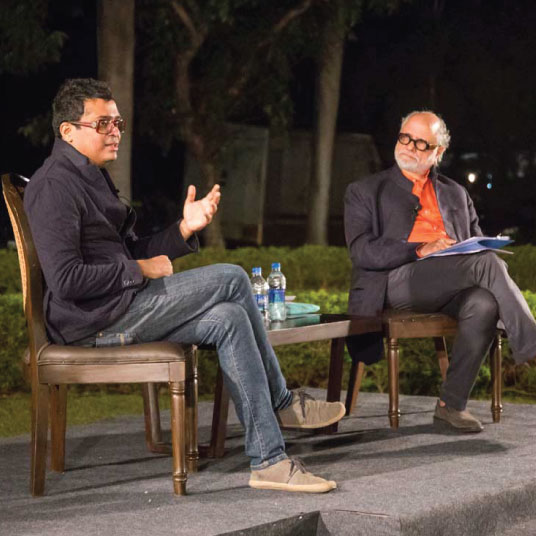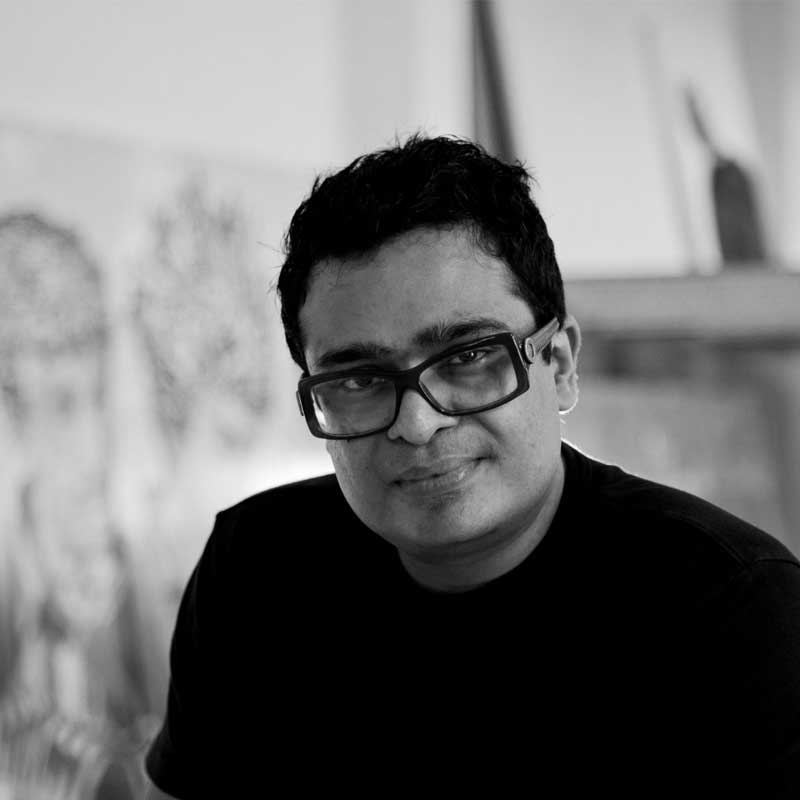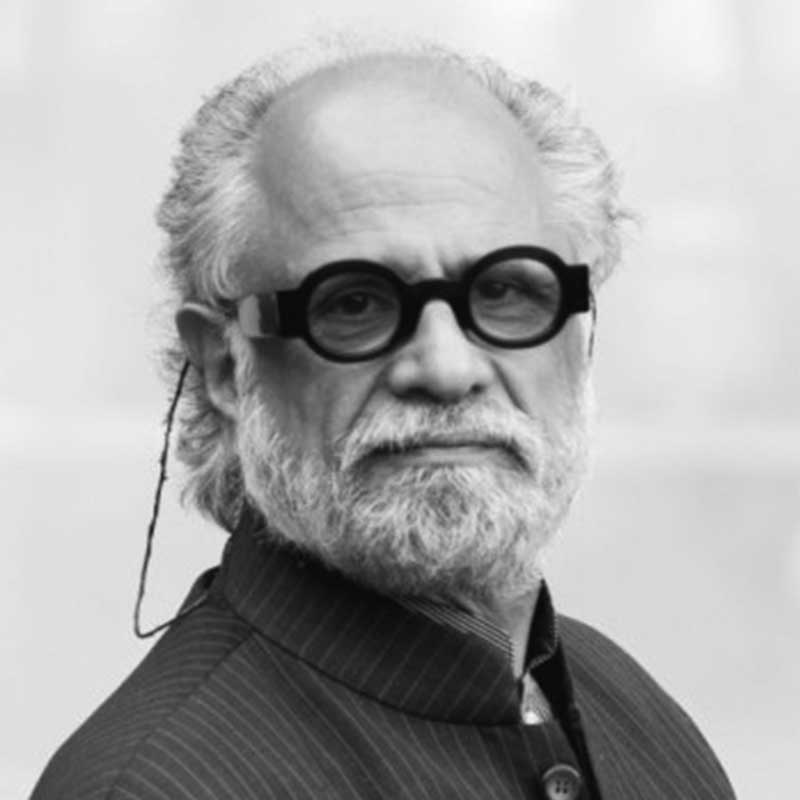
Cultural theorist and Professor of the Humanitites, Harvard University, engaged contemporary artist Jitish Kallat in a conversation following the opening of Kallat’s show ‘Covering Letter.’ ‘Covering Letter’ reflected a letter of correspondence that Gandhi sent to Hitler in 1939 urging him to reconsider his violent means. Kallat describes the note as a haiku: a plea from a great advocate of peace to possibly one of the most violent individuals that ever lived. It is equally an open letter for self-reflection.

Jitish Kallat is one of the most prominent figures of contemporary Indian Art. Born in 1974, he received a Bachelor of Fine Arts degree in painting from the Sir J.J. School of Art in Mumbai in 1996.
Kallat’s vast oeuvre spanning painting, sculpture, photography, drawing and installation, reveals a deep involvement with the city of Mumbai and derives much of its visual language from his immediate urban environment. His subject matter has been described previously as ‘the dirty, old, recycled and patched-together fabric of urban India’. Wider concerns include India’s attempts to negotiate its entry into a globalised economy, addressing housing and transportation crises, city planning, caste and communal tensions, and government accountability.
Many of Kallat’s works focus on Mumbai’s downtrodden or dispossessed inhabitants, though treating them in a bold, colourful and highly graphic manner.
His solo exhibitions at museums include institutions such as the Art Institute of Chicago, Bhau Daji Lad Museum (Mumbai), the Ian Potter Museum of Art (Melbourne), CSMVS Museum (Mumbai), the San Jose Museum of Art and Art Gallery of New South Wales (Sydney).
He was the curator and artistic director of Kochi-Muziris Biennale 2014. Kallat lives and works in Mumbai.

Dr. Homi Bhabha is the Anne F. Rothenberg Professor of the Humanities in the Department of English, the Director of the Mahindra Humanities Center and the Senior Advisor on the Humanities to the President and Provost at Harvard University. Bhabha is one of the most distinguished cultural theorists of the postcolonial and diasporic experience and has developed a number of the field’s neologisms and key concepts, such as hybridity, mimicry, ambivalence and mimicry. According to Bhabha’s theory, such terms describe ways in which colonized people have resisted the power of the colonizer. He is the author of numerous works exploring postcolonial theory, cultural change and power, and cosmopolitanism, among other themes.
In 2012, he received the Padma Bhushan award in the field of literature and education from the Government of India.